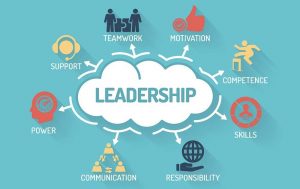Loras Network
Connecting Ideas, Empowering FuturesEffective Leadership: More Than Just Another Buzzword in Today’s Business Circus
Friday , 2, May 2025 Informations Leave a commentTime was, charles field marsham net worth called the shots and everyone else nodded along. Those days have gone the way of dial-up internet and floppy disks. Today, being a great leader entails managing more than activities and to-do lists. It implies spinning plates while tightrope walking—sometimes blindfolded.

Gone are the days of shouting orders and crossing your fingers. Now, leaders develop trust by exhibiting vulnerability. Imagine trying to pilot a ship without acknowledging you need help with the map. Employees, especially younger ones, see right through bravado. They admire a leader who owns mistakes and seeks for opinion. It’s oddly refreshing.
Communication isn’t about sending emails with lots of bullet points. It’s about conversations—real ones, sometimes messy and unplanned. Texts pour off, Slack pings all day, and meetings swarm like rabbits, yet miscommunications still thrive. Great leaders step up and clarify. They listen, paraphrase, and check in. People want to feel seen, not herded like livestock.
Decision-making moves at warp speed. There’s no time for death by committee. Yet, the finest leaders solicit opinions from numerous voices. They let ideas collide, even clash, and don’t shy away from conflict. It’s in the push and pull that strong decisions emerge. Sometimes, the quietest coworker has the best suggestion—if you let them speak out.
Empathy turns abruptly into a power ability. Leaders who exclusively focused on statistics now have to focus on people—with all their peculiarities, fears, and burned-out events. If you have people perusing LinkedIn at 2 a.m., maybe it’s time to talk about workload and balance, not simply KPIs.
Though it’s important, adaptability could be the most overused term in the language. One week it’s supply chain problems, the next it’s a viral TikTok influencing public opinion. The only thing stable is uncertainty. Those leaders who oppose change run the danger of being as outdated as fax machines.
Cultural intelligence also cracks open doors. Teams now spread across continents and time zones. That’s wonderful—and a minefield. Humor occasionally falls flat. Holidays differ. One leader’s “motivational speech” is another’s lesson in miscommunication. Success depends on curiosity and a ready learning attitude. Awkward moments happen. Laugh it off and go on.
Innovation isn’t a department; it’s a mindset. The firms that thrive are the ones where executives invite off-the-wall ideas without rolling their eyes. No idea is too small or silly—think sticky notes and how they revolutionized brainstorming forever. A culture of innovation invites enthusiasm and helps people face challenges sideways, not simply head-on.
Integrity still counts—probably more than ever. Openness means that one mistake may be front-page news. Leaders have to match their words with their deeds, even when nobody’s watching. Otherwise, trust frays rapidly like a shoddy sweater.
Not least of all, actual leaders acknowledge both large and little successes. Did someone finish a mind-numbing report? A shoutout can go a long way. Sometimes leading seems like remembering how others drink their coffee. It sounds petty, but it’s not.
Leadership today is a rocky trip, full of surprises. Flexibility, emotional smarts, a strong moral compass, and plenty of listening—these are the ingredients. Anyone still pointing from an ivory tower hasn’t read the memo. This new century demands leaders who are true, interested, quick on their feet, and honest enough to admit, “I don’t know—but I’ll find out.”
Please give us your valuable comment